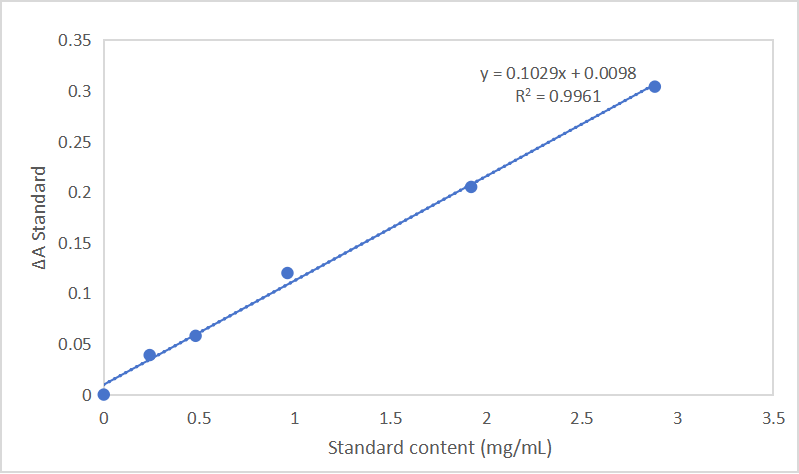| Product name | CheKine™ Micro Soil Organic Carbon (SOC) Activity Assay Kit |
| SampleType | Soil |
| Alternative | Soil Organic Carbon (SOC) |
| Kit components | • Reagent I •Standard |
| Features & Benefits | The verified samples are complete in type and easy to operate. |
| Usage notes | • If not assayed immediately, samples can be stored at -80°C for one month.• It is recommended to perform several dilutions of your sample to ensure the readings are within the standard value range.• Fresh samples are necessary for good results. If don't perform the assay at the same time, it's better to complete the Sample Preparation step before storing the samples. |
| Storage instructions | Storage at 4°C and Keep from light immediately upon receipt. Kit has a storage time of 6 months from receipt. Refer to list of materials supplied for storage conditions of individual components. |
| Shipping | Gel pack with blue ice. |
| Precautions | The product listed herein is for research use only and is not intended for use in human or clinical diagnosis. Suggested applications of our products are not recommendations to use our products in violation of any patent or as a license. We cannot be responsible for patent infringements or other violations that may occur with the use of this product. |
| Background | The concept of soil organic carbon (SOC) refers to the carbon content in humus, animal and plant residues and microorganisms formed by microbial action, which is called soil organic carbon (SOC). Soil organic carbon can be divided into easily decomposed organic carbon, refractory organic carbon and inert organic carbon according to the availability of microorganisms. Those who are easy to decompose have higher bioavailability and loss rate, while those who are difficult to decompose have higher residual rate, which generally accounts for 60%-80% of soil organic matter. And a considerable part of it participates in the formation of humus. CheKine™ Micro Soil Organic Carbon (SOC) Content Assay Kit can detect biological samples such as soli. In this kit, under the heating condition, the organic carbon in the soil sample is oxidized by excessive potassium dichromate-sulfuric acid solution, and the hexavalent chromium (Cr6+) in the potassium dichromate is reduced to trivalent chromium (Cr3+), and its content is directly proportional to the organic carbon content in the sample. The absorbance is measured at the wavelength of 585nm, and theorganic carbon content is calculated according to the trivalent chromium (Cr3+) content. |
| Alternative | Soil Organic Carbon (SOC) |

You must be logged in to post a review.
Reviews
There are no reviews yet.